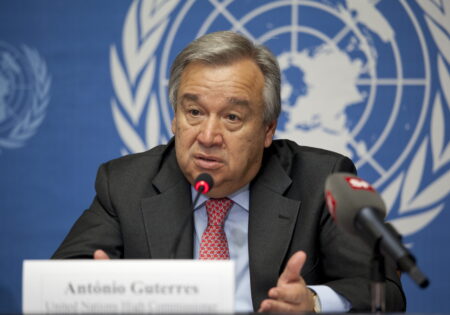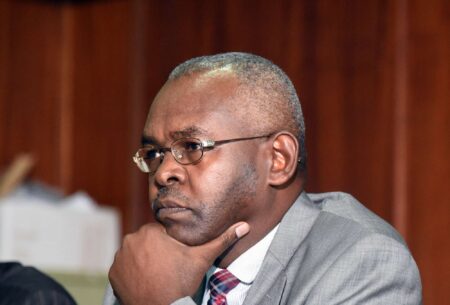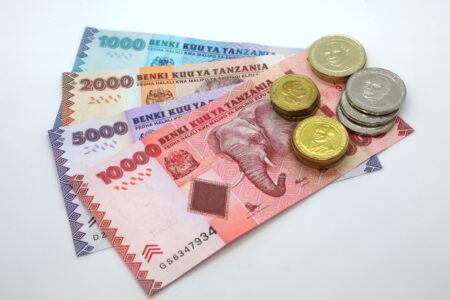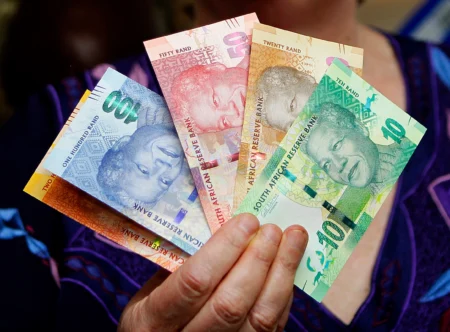- Africa’s new dawn: the rising role of digital and AI in agriculture
- Can Dangote Refinery Transform Africa Energy Ambition
- Gallup Survey: 80 per cent of Kenyan Workers Are Disengaged and Seek New Opportunities
- Madagascar Man Freed from 5KG Tumor After 15-Year Struggle
- How women in Africa are perceived and treated
- Sugar consumption in Kenya to Increase to 1.23 Million Tonnes
- Can Somalia and Turkey Oil deal Bring Change in Somaliland
- Remittances to Kenya dropped to $371.6 million in June, marking a six month low
Browsing: inflation
For many Kenyans, life was unbearable during former President Uhuru Kenyatta’s reign. But just one year after President William Ruto came to power, life is getting more onerous. High taxation, the depreciation of the shilling against the dollar, and record-high fuel prices have highlighted the last few months. This has painted a grim picture of Kenya’s future and shattered citizens’ hopes for economic reinvigoration.
On September 14, 2023, the Energy and Petroleum Regulatory Authority (EPRA) announced record-high fuel prices for the September-October regulation cycle. A litre of super will now retail at Kes 211.64, diesel at Kes 200.90, and Kerosene at Kes 202.61. This represents an increase of Kes 16.96, 21.32, and 33.13, respectively, in the new prices announced last midnight.…
Financial knowledge remains paramount in an era in which increasingly complex financial products have become readily available to many. Governments in different countries have put more effort into expanding access to financial services. Consequently, the number of individuals with bank accounts and access to credit products is increasing.
Financial literacy remains crucial to personal and economic empowerment, enabling people to make sound financial choices and manage their finances effectively. Africa suffers from a significant shortage of financial literacy, which hinders its economic growth and development.…
However, integrating cryptocurrencies with conventional financial systems becomes increasingly essential as they become more commonplace. This presents several obstacles to overcome before cryptocurrencies can realise their full potential. For instance, traditional institutions may be hesitant to work with cryptocurrencies due to concerns about money laundering and other illicit activities. Moreover, the technical difficulty of integrating cryptocurrencies with existing banking systems can prove intimidating.…
xternal and domestic economic shocks disrupted Sierra Leone’s post-pandemic recovery, exacerbating existing macro-fiscal vulnerabilities and plunging Sierra Leone into a severe economic crisis. In Sierra Leone’s presidential poll today, the citizens will look to choose the best promise for an economic rebuild.…
The United Nations (UN) has called for major reforms for two institutions considered key players in the new world order. Antonio Guterres, the UN secretary-general, is pushing for major changes in the IMF and the World Bank.
According to Guterres, the International Monetary Fund has profited the rich nations at the expense of the developing ones. The UN secretary-general describes the response by IMF and the World Bank towards the COVID-19 pandemic as a “glaring failure” that left most developing nations significantly indebted.…
On 15 May, President William Ruto nominated Kamau Thugge as the new governor of the Central Bank of Kenya (CBK). If the Senate and the National Assembly ratify the appointment, Thugge will begin his first term as the CBK governor in mid-June. He will replace the incumbent Patrick Njoroge who assumed office as CBK governor in 2015.
The nomination of Thugge comes at a pivotal time for the Kenyan economy. Kenya’s inflation remains high at almost 8 per cent. The Kenyan shilling has also hit all-time lows against the US dollar. Thus, the monetary policies from the CBK will most likely come in handy in the coming months. But what makes Thugge the perfect fit for the crucial role of Kenya’s top banker?…
The Monetary Policy Committee (MPC) which most recently held its ordinary meeting on 22nd May 2023 has approved the toughened stance. The MPC resolved that; “Given the domestic and global economic conditions, the Bank is to sustain the implementation of less accommodative monetary policy in May and June 2023,” in other words, Tanzanians should tighten their belts. Some more. This policy stance will ensure that inflation in Tanzania remains within the target of 5.4 percent in the remainder of 2022/23.” …
- An infusion of new investments and regulatory transformations is shaping financial interactions and digital payments in Africa.
- Africa’s digital payments operations produced around $24 billion in revenue in 2020, comprising domestic and cross-border payments.
- For Africa’s digital transition to run smoothly, a cohesive environment that ensures investment and funding remains necessary.
Human commerce constantly seeks more efficient exchange mediums, and this innovation is currently intensifying. Consequently, how individuals pay for products and services has changed dramatically in the 21st century. Digital payments in Africa are gradually replacing cash, and cryptocurrencies and virtual currencies have lately emerged as substitutes for conventional money concepts.
Africa has kept up with, and in some instances led, technological advancement. An infusion of new investments and regulatory transformations is shaping financial interactions and digital payments in Africa. Cash remains king in Africa. However, research indicates that its dominance may be challenged in the future years as …
In the last 20 years, Africa’s external debt has grown fivefold to about $700 billion. According to Chatham House, a policy centre in London, Chinese lenders account for about 12 per cent of that amount. As of November 2022, the International Monetary Fund (IMF) and the World Bank considered 22 low-income African countries to either be in debt distress or facing potential external debt distress.…
According to SWIFT, African regions with strong integration saw increased use of local currencies and decreased use of hard currencies such as the US dollar. For instance, the use of the West African franc by the eight countries in the West African Economic and Monetary Union has overtaken the South African rand and the British West African pound.
This implies that boosting the use of regional currencies will shield the African trade market from adverse global conditions associated with the performance of US dollars. However, further regional coordination remains necessary to build a continental payment system that encourages the use of local correspondent banks and local currencies. These moves can help in managing currency depreciation to boost African trade finance. …














